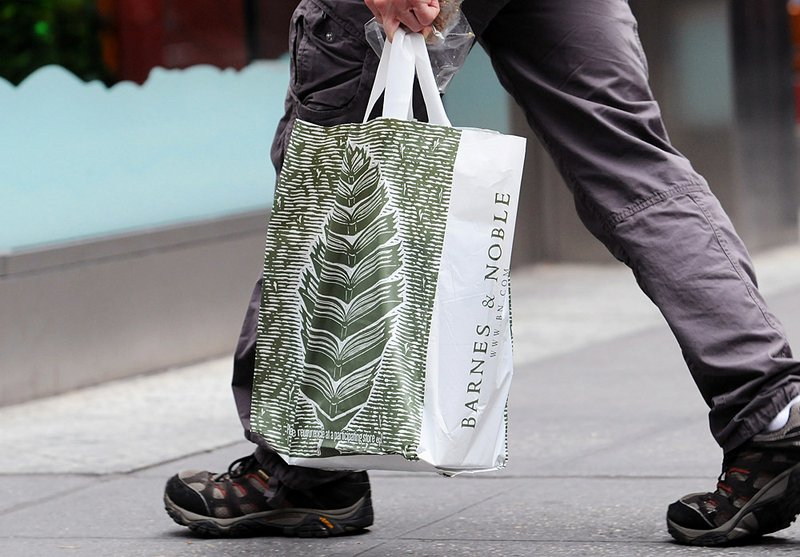NEW YORK — Barnes & Noble Inc.’s shares jumped nearly 30 percent Friday after the company said media mogul John Malone’s Liberty Media Corp. has offered to buy it for about $1 billion.
Being part of a bigger conglomerate could boost Barnes & Noble’s ability to invest in remaking itself for the age of electronic books, analysts say.
Barnes & Noble said that the cash offer is worth $17 a share from the conglomerate chaired by billionaire Malone. Barnes & Noble shares ended at $18.33 Friday, up $4.22.
“As a public company covered by retail analysts, [Barnes & Noble] may not have the leeway or resources to keep up the technology battle,” wrote Gary Balter, an analyst at Credit Suisse in a report published Friday. “Yet as a division of a much larger company, [Barnes & Noble] can afford to fight the good fight, and based on its success to date, win.”
Some even think Barnes & Noble is worth more.
David Strasser of Janney Capital Markets said in a client note that the $17 per share bid is not enough, based on Barnes & Noble’s near- and long-term prospects as itbuilds up its e-book business and short-term advantages from the bankruptcy of brickand-mortar competitor Borders Group Inc. Strasser values Barnes & Noble’s stock at $20 per share.
Barnes & Noble’s board hasn’t weighed in on the deal yet, and the deal is still subject to closing conditions, including that founding Chairman Leonard Riggio keep a stake in the company and remain in a management position.
Liberty Media operates three publicly traded companies - Liberty Interactive Inc., Liberty Starz Group and Liberty Capital Group - through which it runs homeshopping network QVC and movie channel operator Starz LLC and holds stakes in numerous other online, media and communications companies.
Barnes & Noble, which is based in New York, has 705 stores nationwide and 636 bookstores run by its Barnes & Noble College Booksellers LLC subsidiary. The company book shoppers know today has its roots in a single New York bookstore, the Student Book Exchange, which Riggio opened in 1965. By the 1970s, his business had grown to include seven college bookstores, and he bought thethen-failing Barnes & Noble bookselling brand and its existing Barnes & Noble bookstore on Fifth Avenue.
The company put itself up for sale in August in response to pressure from billionaire activist shareholder Ron Burkle. That move came during a proxy battle Burkle waged against the company in opposition to a poison pill plan that limited any single investor to a 20 percent stake. The plan was ratified by shareholders in late 2010.
Traditional booksellers have been facing increasing competition from online retailers anddiscounters such as Amazon.com Inc. as consumers get increasingly comfortable shopping online and turn to the Web to find lower prices on books and, increasingly, to buy e-books they can read on an ereader, smart phone or iPad.
The changing climate has already rocked much smaller Borders Group: The nation’s second-largest bookstore chain, which is based in Ann Arbor, Mich., filed for bankruptcy court protection in February. It has since been carrying out plans to close more than a third of its 642 stores, and is reportedly in talks to sell more than half of the remaining stores. Barnes & Noble CEO William Lynch said in February that his company might be interested in purchasing a “minority” of Borders’ stores.
While Barnes & Noble hasn’t been hurt as badly as Borders, its quarterly results have been weighed down recently by large investments in its online and e-reader businesses - markets both companies have turned to as ways to stem the steady decline in book sales in recent years.
Barnes & Noble reported growth in its online store in the most recent quarter, and said both this and its bricksand-mortar stores were helped by sales of its Nook e-reader. The Nook has gained fans but has not managed to match the buzz generated by Amazon’s Kindle e-reader.
Business, Pages 29 on 05/21/2011

